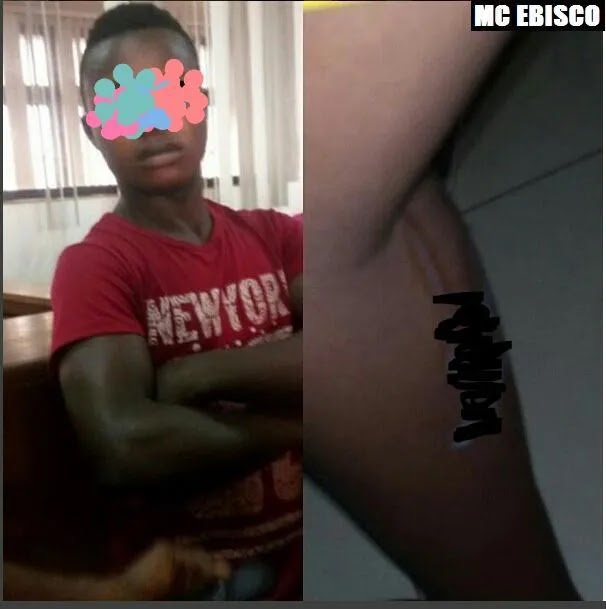By Tonnie Iredia
Nothing else in Nigeria’s contemporary history has received as much widespread support as the campaign against police brutality in Nigeria initiated some two weeks ago by the nation’s youths. No person of conscience was truly opposed to the campaign.
Even the Nigerian government which was understandably uncomfortable with the protests because of their adverse socio-economic consequences did not dismiss the demands of the youths. Instead, President Muhammadu Buhari personally endorsed the demands, while his Vice; Prof Yemi Osinbajo openly apologized for the excesses of the police.
Nigeria will do well to assimilate the lessons of the campaign in order to avoid mixing-up its goals with its incidentals. Put differently, the issue of police brutality ought to be separated from the related subject of police welfare because the tendency in the past to mix them up seems to account for why it has been difficult to deal with the problem.
While the debate on how the #EndSARS protest was managed rages on, the police as an organization which was at the root of the protest needs to be critically examined. Our premise is that the simplistic proposition that police brutality in Nigeria is caused by poor welfare is not true.
While it makes sense to argue that because the work of the police is tedious and therefore deserves good working conditions and commensurate remuneration, it does not similarly make sense to use it to justify the brutality of police operatives on members of the public. The facts which support this position are many. First, not every police operative is brutal.
Indeed, there is no evidence that those committing atrocities in our police force are in the majority. Therefore, that some operatives are not brutal suggests that police brutality is not necessarily caused by poor welfare in the police system. If this had been the dominant reasoning over the years, the police organization itself would have since made police brutality a no-go area for its operatives.
Even the more conceivable imagination that poor salaries of police operatives can justify corruption in our policing system is similarly untenable. This is because not every police operative is corrupt. Only last month when the Independent Corrupt Practices and Other Related Offences Commission, ICPC, celebrated its 20th Anniversary, the tiny figure of 8 citizens only that she picked to honour, included a policeman.
That outstanding awardee was introduced to the nation as Francis Erhabor, Divisional Police Officer (DPO) ‘D’ Division, Itam, Uyo in Akwa Ibom state. The decision to honour Erhabor was based on the finding that in spite of a meagre salary, he refused to accept an annual N6million naira bribe, at N500, 000 per month from criminally minded oil bunkers, out to defraud the nation.
The point which Erhabor’s transparent honesty exemplifies is that the propensity of some police operatives to be corrupt is not due to inadequate remuneration; rather it is due more to greed as it is in the larger Nigerian society, in which many of our wealthy leaders have been convicted for corruption.
ALSO READ: Tinubu to Sanwo-olu: Who ordered Lekki attack? (Photos)
Premising police corruption or brutality on obsolete facilities and poor pay is therefore an error that leaves in the sub consciousness of everyone, the conclusion that the twin malaise can only be corrected by better welfare.
It is a proposition that a methodical analyst ought to be reluctant to advocate. Rather, our police ought to be worthy of their hire; they should develop a better disposition to duty to deserve a better pay. Who would not advocate triple promotion for the Erhabors of the police?
We also accept that many such well-meaning operatives may be in the system but the organization does not seem to fully appreciate the amount of damage the current nation-wide condemnation of police attitudes typifies. Although there are occasional reports of disciplinary action on offending police operatives, the frequency of repetition of the same misdemeanor leaves the police with a poor institutional statement.
The number of times the public is made to observe flagrant disobedience by the rank and file of instructions made at the apex of police hierarchy is worrisome. Whether it is the banning of police check-points or the withdrawal of all police officers attached to Very Important Persons (VIPs); a common trend has been the refusal of police personnel to obey directives by their successive Inspectors General.
When some four days ago, the current IGP, Mohammed Adamu made the same order which he said was to take immediate effect, one major newspaper saw it as a mere ritual because “Adamu’s predecessors had also issued similar directives which were only observed in breach.”
It had been done by IGPs Ogbonna Onovo in 2009, Hafiz Ringim in 2010, Mohammed Abubakar in 2012, Suleiman Abba in 2014, Solomon Arase in 2015 and Ibrahim Idris in 2018. In the case of SARS, the situation has been same. When the then acting President Osinbajo ordered it to be banned in 2018, it was merely renamed FSARS. The current resurrection of End SARS into SWAT, is therefore instructive.
Thus, we need to call on those in charge of the police now, to immediately undertake a critical introspection at this point of her history, otherwise she may lose the opportunity of ever becoming a great institution. One can recall that in her days of prominence, she had a vibrant motor division that was excised and turned into the Federal Road Safety Commission FRSC.
Also, arguably on account of public distrust, her jurisdiction over the crime of corruption was transferred to our current anti-corruption bodies. Today, each of her former branches is probably better funded and equipped than the police. Even basic internal security of maintaining law and order is being frequently assigned to the military.
I am one Nigerian who has every reason to support the police; my friends and relations abound there. Besides, when I was going round the world many years ago to install NTA International, many foreigners in different countries particularly in Europe who greatly assisted me did so because of the respect they had for Nigeria which they attributed to the high level of professionalism displayed by our police with whom they interacted during international peace-keeping missions.
Even at home, organizations that have been given part of the police mandate are still utilizing police personnel and systems. Therefore, we ought not to allow our police to die. As earlier stated, police work is tedious and risky and therefore deserves good working conditions but not many will support her if she does nothing about her current contributory negligence.
A police that brutalizes the citizens she was set up to protect will never fly. In addition, to advocate better working conditions and higher salaries for our police presupposes that the standards of her operatives will correspondingly rise.
Entry requirements must be raised and most importantly, the conduct of the operatives in service must be one of good ambassadors of the organization. Luckily, the current IGP came to office with a quantum of professional and intellectual experience to take the police to the appropriate level. Mohammed Adamu must leave us with a police that is imbibed with modern global practices that are attuned to the most effective and efficient ways of policing.
VANGUARD
The post Police matters: The reluctant advocate appeared first on Vanguard News.













Advertise your business here at cheap rate and get large audience to your market. Call/Msg Teemikemedia: 07060733664 to get started.